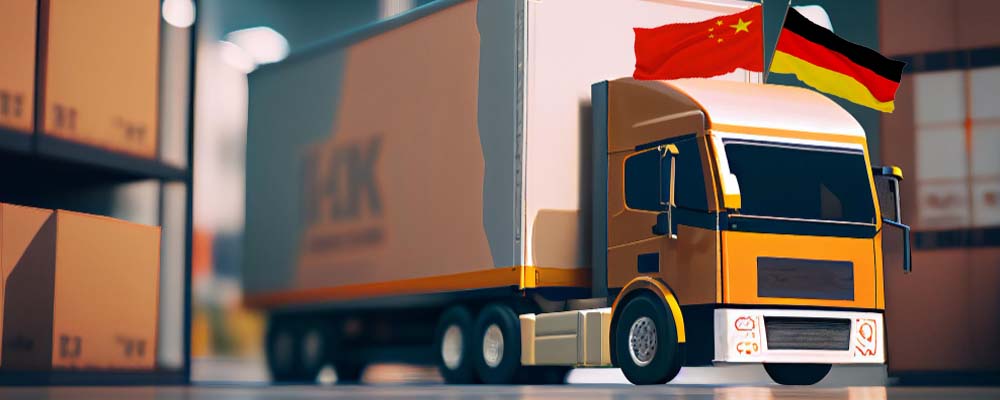
In today’s global marketplace, shipping goods internationally is crucial for many businesses. For those involved in freight forwarding, logistics, importing, and exporting between China and Germany, understanding the complexities of international shipping is essential. This blog post will guide you through everything you need to know about shipping from China to Germany, offering practical tips and valuable insights along the way.
Understanding Customs Regulations in Germany
Navigating Customs Procedures
The first step in successfully shipping goods from China to Germany is understanding the customs procedures. Germany, being part of the European Union (EU), has stringent customs regulations. Ensuring your goods comply with these regulations is paramount to avoid delays and additional costs.
Required Documentation
When shipping goods internationally, proper documentation is critical. For shipments from China to Germany, the essential documents include:
- Commercial Invoice
- Bill of Lading (BOL)
- Packing List
- Certificate of Origin
- Import License (if required)
Having all the necessary paperwork in order is crucial for a hassle-free customs clearance process.
Ensuring Compliance
Compliance with German and EU regulations involves adhering to product standards, safety requirements, and labeling norms. Non-compliance can result in goods being held at customs or even rejected. It’s advisable to work with a customs broker to ensure all regulations are met.
Shipping Periods from China to Germany
 Air Freight Shipping Times
Air Freight Shipping Times
For time-sensitive shipments, air freight is the most expedient method. Typically, air freight from China to Germany takes between 3 to 7 days, depending on flight availability and customs clearance times. However, it’s also the most expensive shipping method.
Sea Freight Shipping Times
Sea freight is a cost-effective option for large shipments, though it takes longer. Standard shipping times range from 4 to 6 weeks, considering transit time and potential delays at ports. Planning ahead is essential to accommodate these longer shipping periods.
Rail Freight as an Alternative
Rail freight offers a middle ground between air and sea freight. It usually takes around 2 to 3 weeks for goods to travel from China to Germany by rail. This option balances cost and speed, making it an attractive choice for many businesses.
 VAT in Germany
VAT in Germany
Understanding VAT
Value Added Tax (VAT) in Germany is an essential consideration for importers. Unlike some countries, VAT is applied to most goods imported into Germany, and the standard rate is 19%. Accurate calculation and payment of VAT ensure smooth customs clearance.
VAT Registration for Businesses
For businesses importing goods into Germany, registering for VAT is often necessary. This involves obtaining a VAT identification number and filing regular VAT returns. Consulting with a tax advisor can help streamline this process.
Recovering VAT
Businesses can often recover the VAT paid on imports. This involves keeping detailed records of all transactions and submitting them to the tax authorities. Proper documentation is key to successfully reclaiming VAT.
Remote Area Surcharge
What is a Remote Area Surcharge?
When shipping to less accessible or rural areas, carriers may impose a Remote Area Surcharge. This additional fee compensates for the extra effort required to deliver to these locations. Understanding these charges can help you budget more accurately.
Identifying Remote Areas
Carriers like DHL, FedEx, and UPS provide lists of remote areas. Checking these lists before shipping can prevent unexpected surcharges and allow you to explore alternative delivery options if necessary.
Managing Costs
To manage costs effectively, consider consolidating shipments when possible or using local distribution centers. This can reduce the frequency of deliveries to remote areas, thereby minimizing surcharges.
Restrictions
Prohibited Items
Certain items are prohibited from being shipped from China to Germany. These include:
- Hazardous materials
- Narcotics
- Counterfeit goods
- Specific chemicals and pharmaceuticals
Always check the latest regulations to ensure your goods are permissible for import.
Restricted Items
Some items are subject to restrictions and may require special permits or licenses. Examples include:
- Weapons and ammunition
- Certain electronics
- Plants and animals
Obtaining the necessary permissions in advance can prevent delays and penalties.
Country-Specific Regulations
Both China and Germany have specific regulations governing the import and export of goods. Staying informed about these regulations and working with experienced logistics providers can help you avoid compliance issues.
Frequently Asked Questions (FAQ)
What is the best shipping method for small, urgent packages?
Air freight is the best option for small, urgent packages due to its speed. Despite being more expensive, the quick delivery times often justify the cost for urgent shipments.
How can I track my shipment from China to Germany?
Most carriers offer tracking services that enable you to monitor the progress of your shipment. Utilizing these tools can give you real-time updates and help manage any potential issues.
Are there any duties or taxes besides VAT?
Yes, besides VAT, you may need to pay customs duties depending on the nature and value of the goods. These duties vary and should be calculated as part of your total shipping cost.
 Conclusion
Conclusion
Shipping from China to Germany involves navigating a maze of regulations, shipping options, and potential surcharges. By understanding customs requirements, choosing the right shipping method, and staying informed about VAT and other fees, businesses can streamline their shipping processes and avoid costly delays.
Partnering with experienced freight forwarders and customs brokers can further ease the complexities involved, ensuring your goods arrive safely and on time. Stay proactive, plan ahead, and leverage the expertise around you to make international shipping a less daunting task.
For more detailed guidance and personalized assistance, consider contacting us. We can help you refine your shipping strategy and ensure compliance with all necessary regulations.




 Air Freight Shipping Times
Air Freight Shipping Times VAT in Germany
VAT in Germany Conclusion
Conclusion



